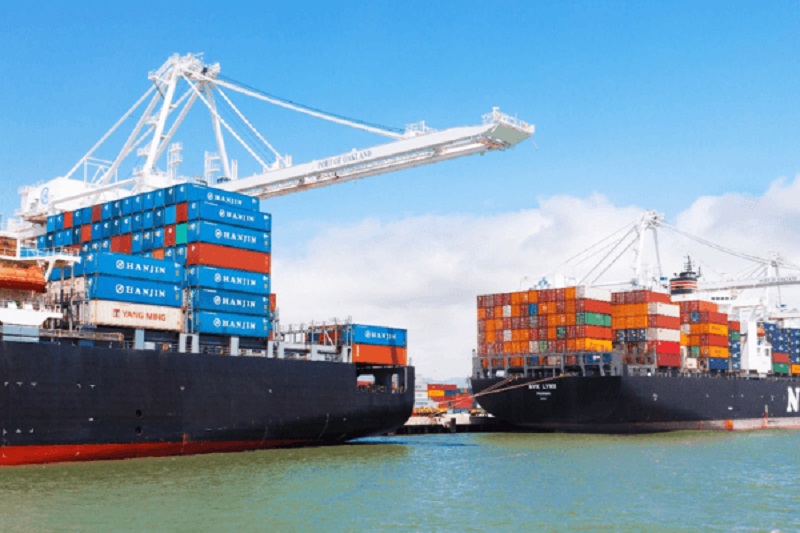The impending disbursement of the Cabotage Vessels Financing Fund (CVFF) has ignited a call for crucial reforms within Nigeria’s maritime sector, focusing on empowering indigenous shipowners. A prominent voice in the industry, Tunji Brown, advocates for the removal of the waiver clause within the cabotage law, arguing that it undermines the very essence of the policy, which is to prioritize domestic operators within Nigeria’s coastal trade. He proposes replacing the waiver clause with a right of first refusal, a mechanism that would give Nigerian companies the initial opportunity to secure contracts before foreign entities are considered. This, he believes, will be a pivotal step in shifting the balance of marine asset ownership from foreign to indigenous hands.
Brown’s argument centers on the fact that cabotage is intrinsically a matter of domestic trade, not foreign policy. The existing waiver clause, he contends, allows foreign vessels to operate within Nigerian waters, effectively bypassing the intent of the cabotage law. This not only stifles the growth of local shipping companies but also deprives Nigeria of significant economic benefits, including job creation and revenue generation. He highlights the abundance of qualified Nigerian professionals capable of managing the maritime sector effectively, further emphasizing the redundancy of the waiver clause. By granting the right of first refusal to Nigerian companies, Brown asserts that they would finally have a fair opportunity to compete and grow their businesses, ultimately contributing to a more robust national economy.
A key concern for Brown is the lack of financial support provided to indigenous shipowners. He argues that the current structure of the CVFF, coupled with the existence of the waiver clause, has rendered indigenous companies unable to effectively participate in the maritime trade. The disbursement of the CVFF, he emphasizes, presents a golden opportunity to rectify this imbalance and equip local businesses with the resources they need to acquire and operate vessels. He criticizes the current two percent revenue collection by the Nigerian Maritime Administration and Safety Agency (NIMASA), deeming it inadequate for the development of the CVFF and calling for legislative action to increase funding. This enhanced funding, coupled with the right of first refusal, would create a more level playing field and empower Nigerian shipowners to compete effectively.
The fragmentation within the Nigerian shipping industry is another critical issue highlighted by Brown. He laments the inability of local shipowners to unite during bidding processes, making them vulnerable to competition from larger, more established international firms. This lack of cohesion, combined with the proliferation of small vessel-owning companies, has particularly hampered Nigerian involvement in the lucrative upstream oil sector. Furthermore, he alleges collusion between some local operators and foreign vessel owners, accusing them of exploiting the waiver clause to perpetuate foreign dominance in the Nigerian maritime sector. This practice, he argues, undermines the cabotage initiative and allows foreign interests to continue reaping the benefits that should accrue to Nigerian businesses.
Brown’s perspective underscores a significant gap between the demand within the Nigerian maritime market and the local capacity to meet it. He points to shipbuilding and ship repair yards as crucial areas where Nigeria lacks the necessary infrastructure to support a thriving cabotage system. This deficiency perpetuates reliance on foreign-owned vessels and further diminishes the potential economic benefits for Nigeria. He paints a stark picture of the current situation: marine assets operating in Nigeria are valued at over $180 billion, yet Nigerians own less than 10% of these assets. Most vessels operate under temporary importation agreements, offering minimal direct economic benefit to the country.
The crux of Brown’s argument revolves around the imperative of empowering indigenous shipowners. He envisions a scenario where Nigerian companies, equipped with the necessary financial resources and given preferential treatment through the right of first refusal, can take control of their maritime destiny. This, he believes, will not only boost the Nigerian economy but also generate much-needed jobs and strengthen the nation’s maritime sector. He calls for decisive action from the National Assembly to amend the cabotage law, replacing the waiver clause with the right of first refusal and significantly increasing funding for the CVFF. These reforms, he argues, are essential to realizing the true potential of the cabotage initiative and securing a prosperous future for the Nigerian maritime industry.














